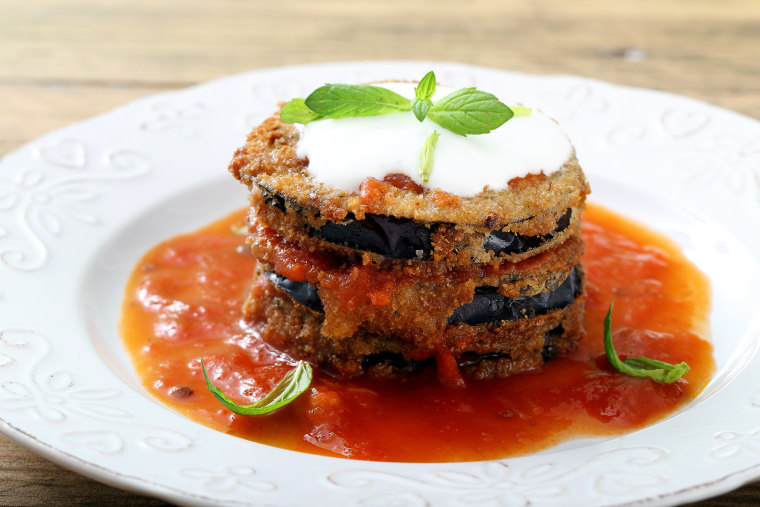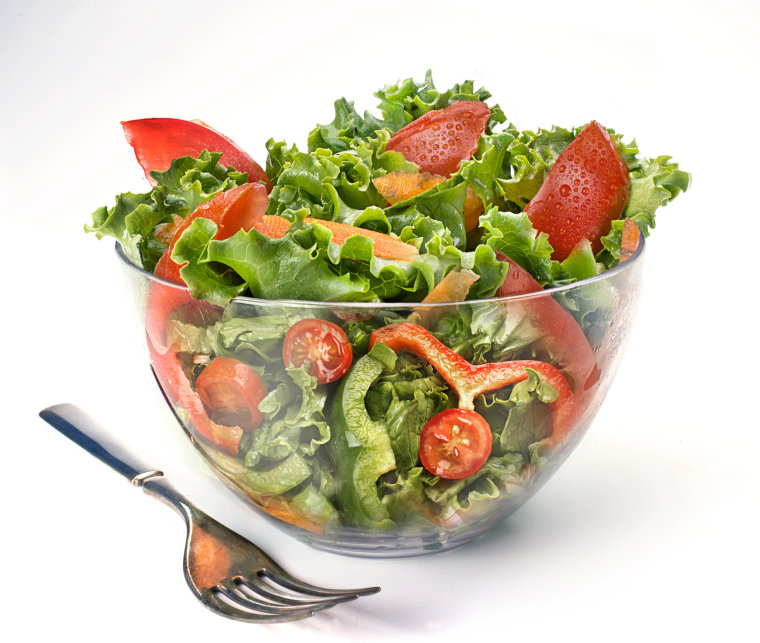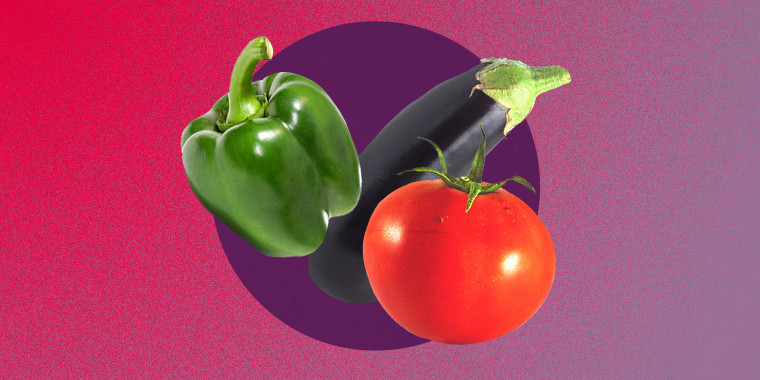The word "nightshade" could make people think of many things. Maybe a lamp shade? Or glasses?
But, actually, nightshades are a category of vegetables and fruits belonging to the Solanaceae family. What all nightshade foods have in common are alkaloids, nitrogen-containing substances that are found in the leaves, stems and edible parts of the plants.
Here's a list of nightshade vegetables:
- Tomatoes
- Eggplants
- Potatoes
- Peppers
Are sweet potatoes nightshades?
Sweet potatoes are among the foods that are commonly mistaken as nightshade vegetables, but they're not nightshades.
Here's a list of vegetables that people often think are nightshades, but are not nightshades:
- Black pepper
- Coffee
- Cucumbers
- Garlic
- Spinach
- Sweet potatoes
- Zucchini
While nightshades offer a lot of beneficial nutrients, including antioxidants, some health professionals believe they contribute to inflammation in the body, and therefore, advise limiting or avoiding nightshades in the diet to reduce inflammation. However, more research is needed before any firm conclusions about such claims can be drawn.
Like lectins found in beans and grains, alkaloids are toxic in high amounts. But simply cooking these foods can significantly reduce the concentration and reduce any real cause for concern.
Should people avoid eating nightshades?
If you know someone who is avoiding eggplant parm or french fries, they may be trying to reduce their intake of glykoalkaloids, the specific type of alkaloid found in nightshades — or to relieve symptoms of digestive distress.
One of the most common reasons people avoid nightshades is because they believe the foods will increase inflammation. While there are no definitive studies out there to prove it yet, some people report feeling less joint pain when they stop eating them.

In animal studies like this small study, or this one, potatoes were linked to digestive issues, even more so when the potatoes were fried. This was especially in the animals already predisposed to inflammation of the GI tract, as some people with conditions like Irritable Bowel Disease, or IBD, have.
It may translate to digestive inflammation in humans, too. Though these are small animal studies, those who suffer from IBD should pay attention to possible discomfort after chowing down on a plate of fries.
Are there reasons nightshades would be good to eat ?
Let’s talk about some of the benefits of these beautiful foods, because there are lots of them.
Something to consider: The same nightshade foods thought to contribute to inflammation also contain powerful antioxidants that are known to reduce inflammation.
Tomatoes, in particular, contain lycopene, a compound known for its ability to actively reduce inflammation in the body.
Nightshades are also high in vitamins A and C, both of which act as antioxidants in the body and contribute to the prevention of chronic disease.
These foods are also rich in water and fiber, which are important for good gut health.

The bottom line
Nightshades aren't necessary to meet nutrient needs, so anyone who feels better without eating them can safely avoid them.
However, it's likely that the issues are not caused by the nightshades themselves. Specialized diets like the elimination diet can help some people determine whether it’s the eggplant causing the bloating and inflammation, or something else, like weekly alcohol consumption.
People who don’t suffer from IBD, or even those who do, probably don't need the added stress of avoiding an additional group of foods that might actually be doing good.
More important things to avoid, to stay inflammation-free and prevent chronic disease, are foods that contain trans fat, high amounts of sodium, added sugar, nitrates and preservatives.
If a super antioxidant-rich tomato cucumber salad is calling, it's probably okay to eat it.


